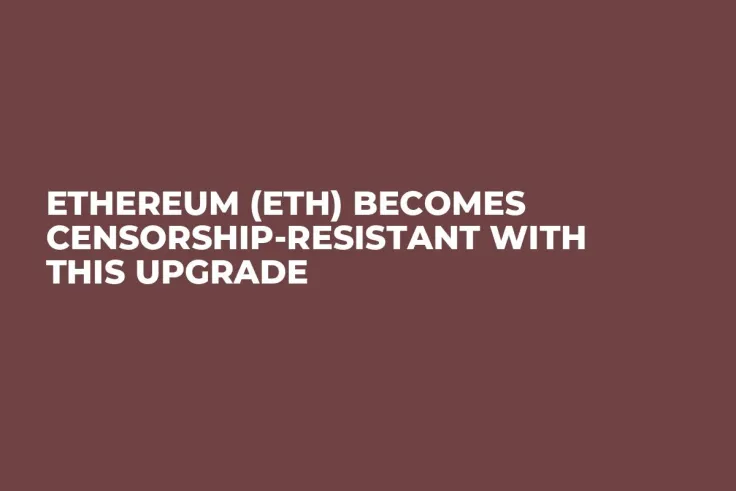
As of now, two heavyweight block producers are in charge of 95% of all Ethereum (ETH) blocks. This opens a path for potential transaction censorship opportunities associated with advanced MEV strategies. EIP 7805, an upcoming Ethereum (ETH) upgrade, might save the second largest blockchain from this, Jarrod Watts of Abstract Chain says.
EIP 7805 to protect Ethereum (ETH) from transaction censorship: DevRel opinion
Right now, Ethereum (ETH), the second-largest blockchain, might be vulnerable to transaction censorship. It became possible thanks to dramatic centralization of block production, with 95% of blocks controlled by two entities. FOCIL: Fork-choice Enforced Inclusion Lists, a hotly-anticipated upgrade, might solve this issue, Jarrod Watts, a DevRel at Abstract Chain, shared on his X.
This dangerous bottleneck for Ethereum (ETH) decentralization arises from the concept of MEV, i.e., the ability of some network actors to manipulate the ETH mempool to prioritize some transactions.
While the MEV strategies of more powerful actors would require block censorship, this might damage both the decentralization and inclusivity of Ethereum (ETH) transaction validation since the Beaverbuild and Titanbuild groups control 95% of block validation.
With EIP 7805 activated, in each slot (before each block), a set of 16 validators will be selected as an “inclusion list committee members.” Each committee member creates their own "inclusion list," a list of transactions from the mempool that must be included in the next block.
Watts explains that this step will reduce the power of block builders and their ability to extract additional value:
Block builders MUST include transactions from these inclusion lists. Validators can only vote (attest) for blocks that include all transactions from inclusion lists. Blocks that do not include those transactions will not be considered valid, and won’t become part of the chain.
He admitted that this would not solve all centralization issues in block production but will definitely make Ethereum (ETH) more censorship-resistant.
Ethereum (ETH) community still optimistic despite ETH/BTC hitting new lows
In terms of validation design, EIP 7805 will bring the power back to validators, DevRel concluded.
The proposed upgrade is a part of novel vision for Ethereum (ETH) suggested by EF veteran Justin Drake, the so-called "Beam Chain." It includes nine crucial updates for Ethereum's (ETH) tech structure and transactions processing procedure.
Meanwhile, Ether is still failing to keep up with the starting cryptocurrency bull run. Yesterday, on Nov. 21, the ETH/BTC rate dropped to 0.03196, which is the lowest since March 2021. As such, Ethereum (ETH) has never been weaker against Bitcoin (BTC) in the ongoing crypto cycle.
 Vladislav Sopov
Vladislav Sopov Dan Burgin
Dan Burgin